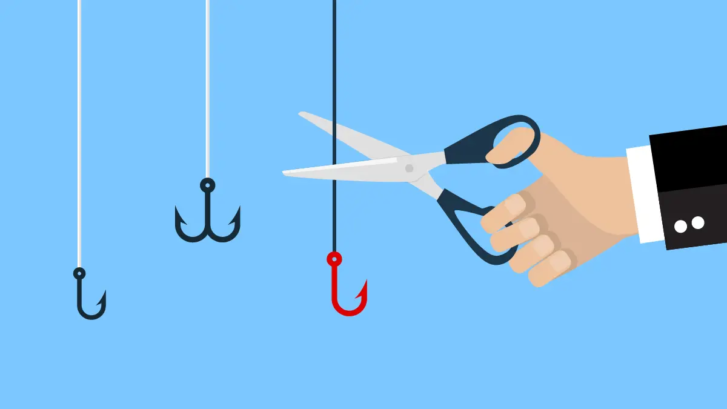We all miss calls. Sometimes we have so much going on, we shout “Hold my calls!” to our imaginary assistant. You may find it happening more often than not lately, as the line between work time and personal time gets more and more blurred. Sometimes we simply don’t recognize the calling number and exercise a strict “do not answer calls from strangers” policy.
Good for you. That’s the safe route to go.
However, what if you’re hoping for a call from a strange number? Maybe it’s opportunity calling about a new job you so desperately need. Maybe it’s the lab getting back to you with test results that you need to see ASAP. Maybe it’s those Nigerian princes who are always so eager to give away their fortunes (but they really mean it this time). Though the latter is never going to pan out, vetting those “Maybe it’s …” requires truly reliable caller ID.
In this article, we cover:
- The definition of vishing
- Reports of vishing at Purdue University and the DEA
- How YouMail Caller ID help protect consumers from phone scammers
What Is Vishing?
Phishing, as you’re probably well aware, is when you’re tricked out of your personal information. We’ve all had to push back weak attempts at phishing. But what do you know about its younger brother, vishing?
vishing – noun
vi-shin
An act of misrepresenting who one is through deceit, trickery, or deception, specifically using voice or a voice message. An amalgamation of “voice” and “phishing.”
International students at Purdue University were the target of a recent vishing scam. Several calls were reported in which it was claimed that the students’ Social Security numbers had been compromised and used fraudulently. (Spoiler: They weren’t.) The scammer would then solicit the students’ bank and credit card numbers to “remedy” the situation.
Receiving such a call would be alarming, especially for an international student who might struggle with the language or be unsure of local norms. However, most would be at least a little skeptical that something is rotten in the state of Denmark. That’s where more sophisticated scams become more troubling.
In another recent case, the Drug Enforcement Agency (DEA) issued a warning of scammers impersonating DEA employees over the phone. These particular vishermen, if you will, up the ante by spoofing DEA phone numbers and threatening arrest, prosecution, and imprisonment for supposed violations of federal drug laws or involvement in drug-trafficking activities. (Spoiler: There were no violations.) They then attempt to monetize this scheme by demanding payment for violation fines over the phone, via wire transfer, or through a gift card. They go so far as to use the names of well-known DEA officials, in addition to fake names and fake badge numbers.
As casual reading, this may seem suspicious and avoidable. But imagine if you were going about your day and a call like this caught you off guard. You’d likely put a lot of faith in your caller ID to confirm the identity of the person on the other end of the line. Add to it the gravity of the DEA, the seriousness of the charges, the badge numbers, perhaps even the recognizable names.
You might be dealing with one of those aforementioned mounting dangers and have become more susceptible to an aggressive attack because you’re not in your best mind state. Maybe the DEA isn’t the federal department that strikes fear into your heart; maybe someone posing as the bank or a public health official is what would cause you the most grief and let your guard down. You can trust that whatever your weakness, an underground world of scammers is dreaming up ways to exploit it.
How to Get Caller ID on Your Phone
Oftentimes when we miss calls, we’re not quite sure what our next step should be. Who was on the other end of that hang-up? When they leave a voicemail, are they really who they say they are? A critical “legit check” that we rely on for incoming phone calls is caller ID. It’s been around for decades, so it’s understandable if you put a great amount of stock in that readout. The problem is, fraudsters can easily spoof legitimate numbers to give the appearance of credibility. That is to say, your built-in solution is fallible.
With YouMail Caller ID, you know exactly who is calling. Take our missed caller ID. Our extensive database of more than 200 million numbers and over 500,000 misbehaving numbers help us identify callers who hang up on you or leave a voicemail. That way, when you’re unsure of who’s calling, you can let it go voicemail and you’ll know whether it was a telemarketer, a scammer, or a legitimate business. Now you know when not to call back and thereby get trapped in conversations you never asked for. And it turns out we’ve filtered out a lot of bad guys in real time praying on both private individuals and businesses, on both iOS and Android.

YouMail shows you the name, city, and state of the caller, as well as an appropriate avatar so you can tell at a glance who called. When it’s a caller that’s likely to be a problem, we identify them as a DEA scam, for example. If they attempt to leave a voicemail, we also play an out-of-service message so they will leave you alone going forward.
The power is in YouMail’s unmatched database of phone numbers. We know which numbers to avoid as scams develop. You can explore our data from the YouMail Reverse Phone Lookup and Robocall Index — a trusted source for government agencies and news reports across the nation.
The best news is that caller ID and many more features are available to you for free. There’s no reason that you can’t shore up your weakest links today and become a true lord of the manner, master of your domain.





